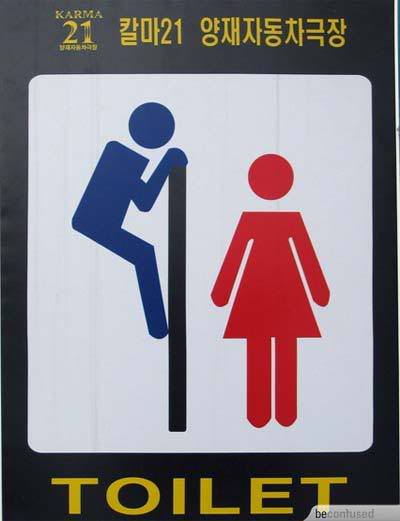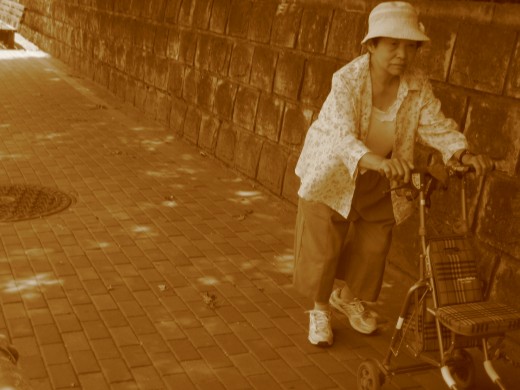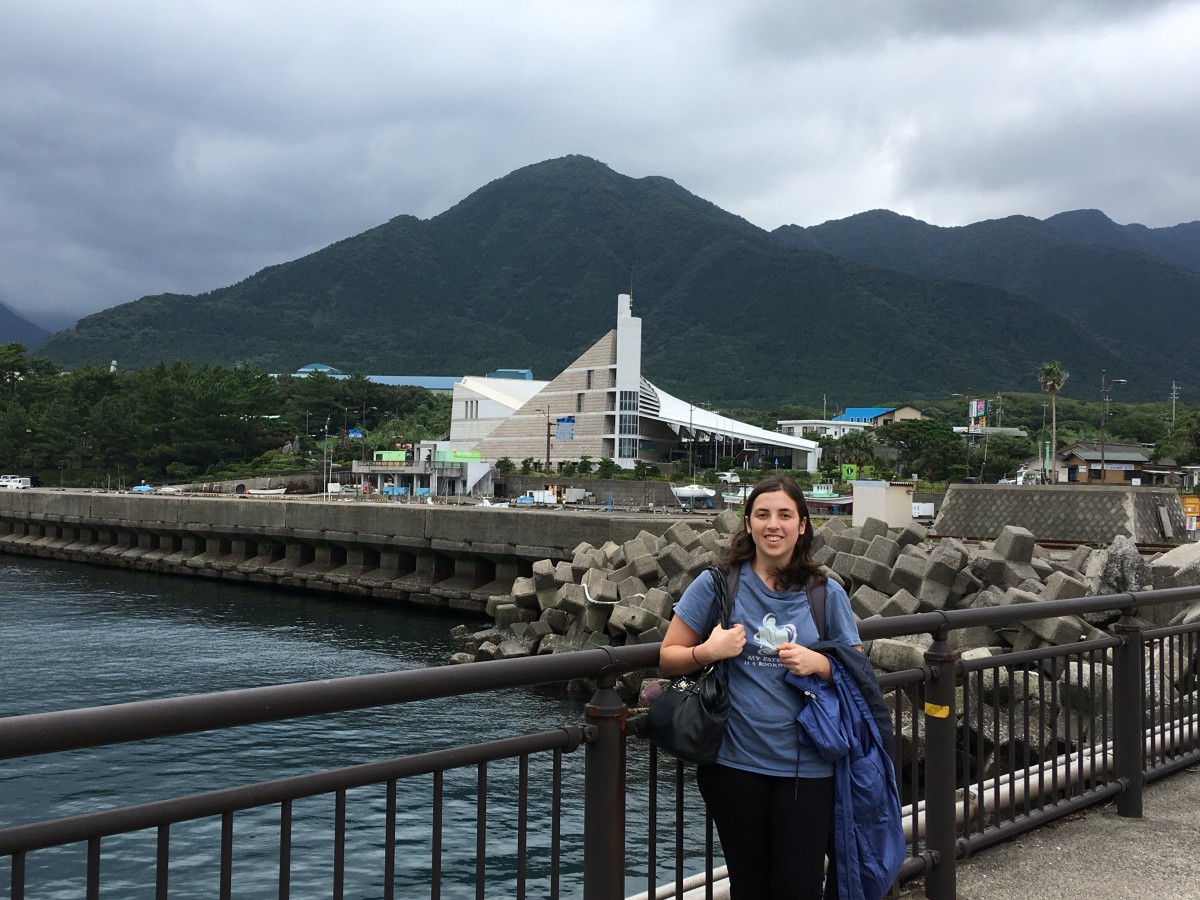- HubPages»
- Travel and Places»
- Visiting Asia»
- Eastern Asia
Teach English in Korea: Is it for me?

It's a hard knock life for us...
As a fresh graduate from university, or even someone who's been in the workplace for a few years, the economics of living have become a lot more difficult to handle these days and many people are searching for solutions outside the regular pattern. Many people are considering themselves lucky to have jobs they never would have considered before the economic downturn, others are going back to school and others still are just hunkering down at Mom and Dad's hoping that things start to look up soon. However, if neither of these options appeal to you or you are just looking for one last bit of excitement in your life before you hunker down and join the rat race, a year teaching English as a second language in Korea just might be for you. The only requirements from you are that you have an undergraduate degree from an accredited school, and are eligible for a work visa -- aka: relatively healthy and not a criminal. You must also be a native English speaker from the United States, Canada, the United Kingdom, Australia, New Zealand or South Africa. You do NOT need any form of ESL or TESL certification to teach in South Korea, although it certainly won't hurt your application.
Here are a few things for you to consider when you are weighing the pros and cons of moving to the land of the morning calm to teach English.
#1 : Your current financial situation
The average position teaching English in Korea pays around 2,100,000 KRW/month (around $2000 depending on the exchange rate) with housing included, and it can be a great way to save money or to pay off debt. Many people find spending a year in Korea to be a great way to take a chunk out of their student debt and gain experience before moving into the job market at home. It all sounds great but before committing to a year-long contract there are a few questions you should ask yourself. There will be some costs associated with moving to Korea, and setting up a new place to live. I have to work a full month before I can get my first full paycheck. Or, worst case scenario, my employer may not pay me on time. Does my current financial situation allow me to wait a month, or even two before I can send money home? How will the current exchange rate and predicted exchange rates between Korea and my country affect the money that I'll be able to save? Can I afford to wait out dips in the exchange rate so I can get a better price for my won?
(For a more indepth look at financial considerations click here. )
#2 : Your openness to trying new things
Some people are on a constant quest for discovery; always seeking out new sights, tastes, and smells. They never seems to be quite satisfied with the status quo. Other people, just like what they like. Still others, are afraid of anything that even suggests a change, and everyone else seems to fall somewhere between the two extremes. Generally, people who fall towards the former end of the spectrum -- the adventure seeking types -- will enjoy a year spent teaching English in Korea more than those closer to the change-o-phobia end. Not that your position on the scale should be a single make-or-break deciding factor, but it should be considered. Life in Korea is very different from life in the west and your openness to learning about and embracing new things and new ways of life should be considered in your decision making process.

#3 : Your tolerence of other cultures and their biases
Being willing to try new things and how you react once you discover that the new thing isn't quite what you hoped for or expected, are two completely different kettles of fish. Don't assume that because you like to try new things at home and usually like them, that everything will suit your fancy once you are in Korea. If that does describe you, you're probably pretty well set, but there are still some pitfalls to look out for. How are you going to feel when a taxi drives past you to pick up the Korean person standing just 10 feet down the street? Or when you get hit by an unintentional spit-wad while walking home? Or, when you can hear your name and know that your co workers are talking about you behind your back and giggling, right in front of you because they know you can't speak Korean? Not uncommon occurances in Korea, if things like this stress you out, it's another thing that you should consider before taking the plunge.
#4 : Your ability to role with the punches
Living in Korea, or anywhere that you do not understand the primary language of communication really, can be a bit of a challenge from time to time, and especially when you are a new arrival can be very unpredictable. An ability to role with the punches and not sweat the small stuff is really an asset in reducing your stress level at any time in your life, and pretty essential for life in Korea.
During your time in Korea, this ability is going to influence your life in a broad range of ways from the social to the professional. Shopping for your daily essentials, as well as interacting with locals is obviously going to be very important for anyone hoping to really experience Korea, but it is also worth noting that Korean employers' expectations are quite different from what many new teachers expect. Expect even the best of employers to be a little unpredictable in terms of their expectations of you.

#5 : Your attachment to your friends and family
Korea is far away from home, and flights are expensive. Your contract will probably say that you have 10 days paid vacation, but in most cases it is not up to you to decide when your vacation is, and its normally split into a week around Christmas and a week during peak season when flights are at their most expensive. Staying in contact with friends and family back home is becoming progressively easier and less expensive with modern technological advances such as Skype but you still won't be able to see your friends and family for a whole year. By the time college graduation roles around, this is not an issue for most people, but it continues be for some, and is not something to be taken lightly.

#6 : Your lifestyle
There are so many different ways to live your life in the western world these days, that it has become a bit of a challenge to define what is a normal existence. In North America and in many other places in the world, people live out their lives however they see fit, and make a lot of choices that, although they would have shocked our great grandparents, are perfectly acceptable in the world of today. Korea has yet to embrace our gusto for the pursuit of living your life as you wish without the social constraints of yester-year. There is only one acceptable way to live in Korea, and that's the Korean way. Lifestyle changes as innocuous as vegetarianism are not understood here, and are seen as pretty bizarre, with more controversial lifestyles such as homosexuality being openly rejected. Koreans are willing to cut foreigners a lot more slack with these issue than they are to each other, but if you are offended by people being offended by you, Korea may not be the best place to spend a year abroad.
Above all: Research, learn and make informed decisions.
These are just some of the many things that must be considered before picking up from everything we know and love and moving to another part of the world. For all the caution that's being advised, Korea really is a wonderful place and the people are warm and friendly. It's a great place to pay off student debt or to save money for graduate school, and is a priceless experience in and of itself. The most important thing to do is research, learn and make informed decisions so that there aren't any bad surprises when you get here. A little research can go a long way in making your experience an enjoyable one.
Laura Berwick is an English teacher at a private English academy in Seoul, South Korea. For more information about her, or about her Korean experience please feel free to visit her blog.








